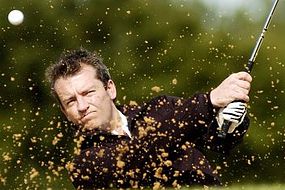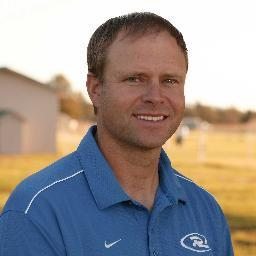January 27, 2016
WYC 068 – Player Development – Stuart Armstrong talks The Talent Equation
Stuart does player development for England Rugby by day and shares stuff with the world about talent development by night. Stuart worked in coaching golf for 10 years and invented a game called Try Golf, and over the past 4-5 years has been involved in developing talent pathways with many athletes, including Olympic athletes and the players at England Rugby.
Website: thetalentequation.co.uk
Facebook: /thetalentequation.co.uk
Twitter: @stu_arm
Listen Now:
Listen in ITunes: Itunes link
Listen in Stitcher: Stitcher link
Quote
‘Task Design is critical – because many people get uncomfortable when they see someone struggling and not being able to get there quite yet- so they either jump in and solve it for them, or they move on. But this never allows the learning to happen. The moment when they are close to figuring it out is actually the sweet spot.’ – Stuart Armstrong
Coaching your own kids
- Stuart coaches his own 8 year-old son in field hockey. He also plays ‘house hockey’ with his 4 year-old daughter and son
My Cringe & ‘Ah-Ha’ Moments
- Use video to have someone record you while you’re coaching – then watch it back and make improvements on what you don’t like
- Most gameday frustrations are really just showing your own shortcomings as to what you are teaching (or not teaching) during practice
Talent development
- Task Design is critical – because many people get uncomfortable when they see someone struggling and not being able to get there quite yet- so they either jump in and solve it for them, or they move on. But this never allows the learning to happen. The moment when they are close to figuring it out is actually the sweet spot. So the players shouldn’t think everything is easy and fun – it should be a little frustrating and uncomfortable.
- Design your practices like a video game designer:
- Create ‘levels’ that are within their reach, but it’s a big stretch that might feel just out of their reach. So when they figure something out – ask them ‘are you ready for level 2 now?’
- Use terms like ‘power-up’ and ‘freeze’ to mix up games during practice. One team can ‘freeze’ the other team for 5 seconds
- Mark Upton and Al Smith – My Fastest Mile – Thought leaders on Task Design
- Is your coaching on TARGET?:
- Task Design
- Autonomy
- Repeatability – Repetition without repetition
- Grouping
- Engagement
- Time
- Implicit Learning – False praise and spoon-feeding kids actually creates a fixed mindset in them. Create the task, then say very little – and observe their attempt to solve the problem, and observe what choices they make, then allow them through a questioning approach subsequent to the activity to feed back to you what they are experiencing, then allow them to solve problems. Link: Tharp-Gallimore paper on verbal cues
Self-Confidence and teaching kids to achieve peak performance
- How do you know if learning is taking place? – Teaching Games for Understanding founder Rob Thorpe: ‘It’s great now that kids are playing games instead of doing drills, the problem is if all they are doing is playing games- it’s not a great deal better.’ You have to be doing games in a certain way to create positive learning experiences. One element of this – is to create games that create pressure, or scenarios that have cognitive stress that replicate the competitive environment. One of the ways to do this – is ritual humiliation: i.e. if you lose this competition the winning team will get to choose the song the losing team has to sing.
Culture – Discipline/Rewards/Teambuilding
- Amanda Visek’s research on 81 Fun Maps – top of the list is team dynamics.
- First priority for team dynamics is to get them aligned to a set of behaviors. Establish:
- Unacceptables – We do not accept this behavior
- Acceptables – This is what we are looking for
- Exceptionals – This is what we are striving for
- The 5 Dysfunctions of a Team by Patrick Lensioni
Connecting with and Impacting Kids
- Stuart coached a young man who he challenged to really start to think through the game and challenge himself.
Sports specialization
- Although generally specializing at a young age is not good -there are some young athletes whose have the ‘rage to master.’ i.e. – Rory McIlroy was obsessed with golf and to have forced him to play other sports probably didn’t make sense for him.
Concussions
- Rugby players he coaches have a graduated return to play – that is 21 days!
Parting Advice
- Don’t be afraid to make mistakes – be creative, try out some new games. Move away from ‘cone-pawn’ – we don’t want to see fields full of cones and kids following cones.




